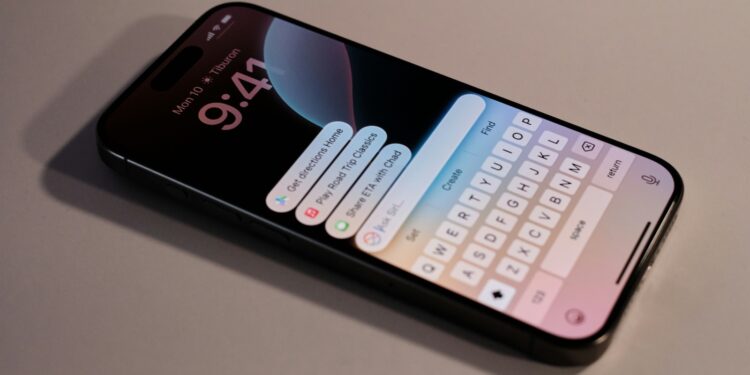Apple is about to present its financial results for the holiday quarter . Many analysts and investors are wondering whether the new AI features, known as Apple Intelligence, will trigger the hoped-for "supercycle" for the iPhone. A supercycle means a particularly large number of customers upgrade to a new model, which significantly boosts sales. So far, this effect hasn't materialized, but that doesn't mean it won't happen. Apple has already laid the foundation for strong performance, but it will take some time before the effects are truly apparent.
When Apple introduced its new AI features in June last year, expectations were high. Many believed that these innovations would immediately drive demand for new iPhones. But the market reacted differently. The reason for this is simple: the first Apple intelligence features are not yet fully available, and the current hardware is just the beginning of a development that will extend over the next few years. The iPhone 16 sold well, but there was no sudden increase in demand. So the super cycle was postponed but not canceled.
The iPhone 16 lays the foundation but the big effect is missing
Apple has equipped the iPhone 16 with better technical data, but that alone is not enough to trigger a mass switch. At the time of the last quarterly figures, the iPhone 16 had only just come onto the market. The new AI functions had been announced but were not yet available. As a result, sales figures increased but with an increase of only 5 percent, they did not fall into the category of a super cycle. Analysts also expect solid but not exceptional sales figures for the current quarterly results. The iPhone remains by far the most important product for Apple, but for investors, growth is what counts above all. And that is precisely what has not yet happened to the extent hoped for. However, expectations for Apple Intelligence remain high. The AI functions are a strong argument for upgrades, but they will only have their full impact in the next few years.
Hardware improvements pave the way for the supercycle
Apple Intelligence is a software platform, but it requires powerful hardware to achieve its full potential. This is already evident in the current hardware updates:
- iPhone 16 series: All models have 8 GB of RAM, a feature that was previously reserved only for the Pro models.
- iPhone SE 4: The upcoming model is said to be equipped with an AI-capable chip.
- Mac upgrade: Apple has equipped all new Macs with at least 16 GB of RAM as standard.
- iPad models: Even the cheaper iPads will soon be equipped with more powerful AI-capable chips.
These changes show that Apple is actively adapting the hardware to future requirements. Rumors suggest that the iPhone 17 Pro will come with 12 GB of RAM and all iPhone 17 models will receive improved cooling. The upcoming A19 chip will also offer significant advances, especially in the Neural Engine, which is crucial for AI functions. Such aggressive hardware improvements in such a short time are rare at Apple. This suggests that the company is deliberately preparing for a new era in which AI plays a central role.
Why the iPhone supercycle is delayed but inevitable
The supercycle is not happening for two main reasons. First, the first Apple Intelligence features are not yet revolutionary enough to cause a massive increase in iPhone demand. Second, many users are still happy with their current devices and see no compelling reason to upgrade. However, this will change in the next two to three years. Apple is investing heavily in the further development of its AI technology, and new, more powerful features will be introduced with iOS 19, iOS 20 and future versions. At the same time, the hardware will continue to be optimized, so older iPhones will increasingly reach their limits. Over time, the advantage of a newer iPhone with Apple Intelligence will become so clear that many users will no longer be able to delay the switch. This is the point at which the supercycle will begin.
Apple: The super cycle is coming – just later than expected
Apple Intelligence has the potential to trigger one of the largest upgrade cycles in iPhone history. But this process won't happen overnight. Current sales figures show that AI capabilities alone won't drive an immediate boom. But with continuous hardware improvements and increasingly advanced software features, this will change in the coming years. The supercycle is coming – it just needs a little time. Find accessories that are just right for you in our Amazon Storefront ! (Photo by Unsplash / appshunter.io)
Disclaimer: No recommendation for investments
This article does not constitute financial or investment advice. The information contained herein is for journalistic and informational purposes only. Please conduct your own research or consult a financial advisor before making any investment decisions.
- Apple sets new priorities: Siri update & AI optimization
- AI and Apple: Why the gap is only apparent
- Health as a priority: Apple's big plan for the future
- Tim Cook: Why Apple is not planning to charge for AI services
- Siri 2.0: How LLM Siri could overtake the competition





